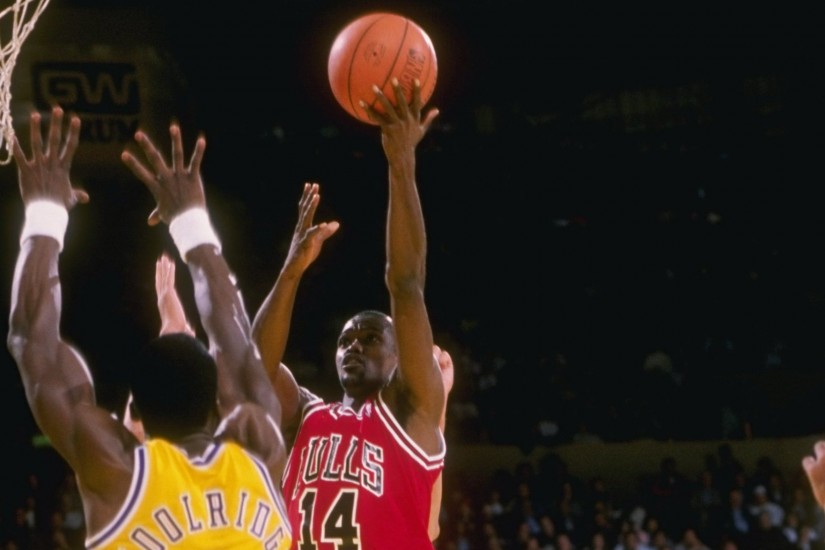Long Shot is the engrossing story of a cerebral athlete activist who was willing to align his sentiments and actions, even if it meant sacrificing his career on the altar of his beliefs. Hodges passionately gobbled up politics, reading books on road trips and taking on the role of team representative with the NBA Players Union. “Everyone in the league knew they were eventually going to get an earful of political talk if they bumped into me,” he writes. Hodges also attended events held by the Nation of Islam, although he was not himself a member. “Most people take their first date to a movie, but not me,” he declares. “I take my first dates to hear the minister Louis Farrakhan speak.” One journalist in the know revealed to Hodges that because of his politics, and the perception that he was affiliated with Farrakhan, he was traded. Long Shot describes how he was eventually blackballed from the league.
With political outspokenness came labor peril. A key step along the way involved perpetual frenemy Michael Jordan. In the wake of charges being dismissed against the Los Angeles police officers who had brutally beaten Rodney King, even though the thrashing was caught on camera, Hodges felt like Jordan wasn’t doing enough. Partway through the 1992 NBA championship series, Hodges told as much to William C. Rhoden of the New York Times. He said, “This is a war … We’re in war when you look at what happened in Los Angeles, what’s getting ready to happen in Chicago, Newark. The poverty in the city is so hellish, just look across the street. Then you have us playing in here—how much money did we make here last night? How many lives will it change?” He continued, “Leadership in America is the athletes and entertainers. That’s why I feel I have to start speaking out. I don’t like to, I don’t like to step on toes. I don’t feel like somebody should tell you what you should be doing.” Yet Hodges was a person of deep principle and he absolutely had to speak his mind. He also slammed the NBA for failing to fill coaching vacancies with qualified African Americans. Portland Trail Blazer legend Clyde Drexler agreed with Hodges: “We talk about it all the time … Eventually, I think something has to be done. At some point in time, something has to be said on a national level.” The Chicago Bulls defeated the Trail Blazers for the 1992 NBA championship. Less than a month later, Hodges, who was a free agent, learned that the Bulls would not re-sign him. No NBA teams would return his calls. He was effectively being banished from the league.
